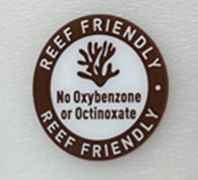From “Love Gas” to “reef friendly” sunscreen: The ACCC has made it clear over the past few weeks that it simply doesn’t ‘have a type’ when it comes to greenwashing
Market Insights
The Australian Competition and Consumer Commission (ACCC) has brought in the new financial year with several new Federal Court greenwashing actions under its belt, suggesting that it may move towards a more assertive enforcement approach after allowing businesses time to digest its December 2023 guidelines on making environmental claims (Greenwashing Guidelines).
The actions centre around the types of ‘renewable‘ and ‘safe for the environment‘ marketing claims that are increasingly popular with businesses seeking to attract environmentally conscious customers. The ACCC has made it clear it has no “type” when it comes to greenwashing. Its recent actions, targeting businesses in two completely different industries with vastly different products send a clear message to the market that no sector or product category is off-limits when it comes to potential greenwashing enforcement.
In this article, we will provide an overview of the respective Federal Court proceedings that have been instituted by the ACCC and the alleged ‘greenwashing’ claims made.
“Love Gas” – ACCC v Australian Gas Networks
The ACCC commenced action against Australian Gas Networks Limited (AGN) in late June, alleging it made false or misleading representations in its “Love Gas” advertising campaign rolled out to consumers on TV and via streaming services and YouTube in 2022 and 2023.
The ACCC alleges that AGN, a direct-to-consumer gas distributor, made false or misleading representations when it conveyed in its advertisements that the gas it distributes would be renewable within a generation. It is the ACCC’s view that AGN did not have “reasonable grounds” for making these “unqualified claims about the future of gas”. Under the Australian Consumer Law (ACL), it is likely to be misleading to make a representation about a future matter if you do not have reasonable grounds for making it.1
What were the representations?
There were four ads rolled out by AGN, which featured a young girl and her father using gas appliances at home for heating, cooking and bathing. The ads then fast-forward to show the girl, now a young adult, using gas appliances for the same purposes. The ads contained, either in text or through use of a voiceover, statements like:
- Some things never change, but the flame we use will;
- It’s becoming renewable;
- Controllable, reliable gas;
- For this generation and the next;
- Love gas. Love a renewal gas future; and
- Love Gas.
No qualifications or disclaimers were included in the ads.
Why does the ACCC say they are false or misleading?
As the case is still in its early stages, there is limited public information about the basis for the ACCC’s claims. In further context given by Gina Cass-Gottlieb (ACCC Chair), it was alleged on behalf of the ACCC that at present, it is not possible to distribute renewal gas at scale for an economically viable price, and throughout 2022 and 2023 it was highly uncertain whether this could be achieved at the time (if at all). It is this uncertain future that the ACCC allege AGN were aware of while representing to consumers that it would be able to overcome what the ACCC referred to as “significant technical and economic barriers” to distribute renewal gas to households within a generation.
Slip slop slapped with a Federal Court claim: ACCC v Edgewell
Just days later, the ACCC commenced action against Edgewell Personal Care Australia Pty Ltd and its US-based parent Edgewell Personal Care Company or Edgewell PCC (together, Edgewell). The ACCC alleges that Edgewell made false or misleading representations to consumers by representing that its Hawaiian Tropic and Banana Boat branded sunscreens were ‘reef friendly’, in circumstances where there was no reasonable or scientific basis to make that claim.
What were the representations?

The representations appeared in Edgewell advertisements that ran between 2020-2024 across its websites, social media, and in catalogues and other publications. They came either in the form of the words ‘reef friendly’ or in the form of a logo like the above which contained the words ‘reef friendly’ and ‘no oxybenzone or octinoxate’, and an image of a piece of coral.
While the US-based Edgewell entity ceased making the ‘reef friendly’ claim in 2020 due to the Hawaii Senate submitting new legislative initiatives to ban additional UV filters, the ACCC alleges that it continued to be used by the Australian Edgewell entity up to December 2024, based on the advice, guidance and direction from its US-based parent.
Why does the ACCC say they are false or misleading?
On 1 May 2018, the sale of sunscreens containing oxybenzone and octinoxate was banned in Hawaii on the basis of scientific evidence indicating oxybenzone and octinoxate cause significant harm to reefs. The Edgewell sunscreens did not contain either of those ingredients, but they did contain ingredients such as octocrylene, homosalate and 4-methylbenzylidene camphor, which are known to either cause harm to reefs (including coral and marine life) or risk causing harm to reefs.
The ACCC also allege that one or both Edgewell entities were aware of scientific studies, literature or other reports that indicated these ingredients were known to adversely affect reefs or that there was a risk of such harm, therefore there was no reasonable basis for Edgewell to claim that the sunscreen products would not cause harm to reefs. The ACCC noted that neither entity took the further step of commissioning testing in relation to the products and their impact on reefs.
Bonus content: Greenwashing action from an unexpected source
Earlier this year, Energy Australia reached a settlement in Federal Court proceedings brought under s18 of the ACL by an activist group known as Parents for Climate, who claimed that Energy Australia had misled customers when it marketed its ‘Go Neutral’ energy product as carbon neutral. The purported carbon neutrality was achieved through the purchase of offsets and while offsets may support projects that reduce or avoid emissions elsewhere, they do not eliminate or reverse the direct environmental harm caused by burning fossil fuels.
As a condition of the settlement, Energy Australia published an apology on its website in which it acknowledged that “carbon offsetting is not the most effective way to assist customers to reduce their emissions” and apologised to any customer who felt that the way it marketed its Go Neutral products was unclear.
Takeaways
The latest updates leave businesses with a few important takeaways:
- Prioritise early collaboration with legal when developing marketing campaigns. This helps ensure your campaigns comply with the ACL from the outset, reducing the risk of costly issues later on and avoiding last-minute changes that could derail your campaign schedule. In the case of AGN, showing a father and daughter using gas appliances at home may have simply intended to tell a touching story, rather than representing to consumers that its gas products would be renewable within a generation. However, as can be seen, the ACCC interpreted the message differently.
- Don’t make environmental claims until you’re 100% satisfied that the research backs them up in each jurisdiction in which the goods or services are sold. In the case of Edgewell, had independent research been commissioned into its products, or a broader variety of sources consulted, it might have been discovered that omitting oxybenzone and octinoxate is not enough to avoid harm to reefs, and corrective action could have been taken to potentially mitigate the ACL risk.
- Be especially cautious about overlooking scientific studies or reports that contradict your marketing messages. In the Edgewell case, the ACCC took the view that the company was aware of information indicating potential harm but failed to properly address it. Ignoring inconvenient evidence, or failing to investigate it further, can expose your business to significant legal risk. To avoid making inaccurate or misleading environmental claims, ensure all relevant evidence is thoroughly reviewed and supported by independent, credible research.
- It is not necessarily just regulators you have to worry about. Environmental claims made by businesses may attract the interests of climate groups and other environmentally-minded organisations as well as the ACCC, and it is not just the ACCC who can decide to commence proceedings for a contravention of the ACL.
How can we help?
We have a dedicated commercial and consumer law team that can assist you with review of marketing materials and provide related advice. Please contact us if you would like more information about the services we provide.
This article was written by Teresa Torcasio, Partner, Zoe Vise, Senior Associate and Monica Jones, Solicitor.
1 ACL, s4.
Subscribe for publications + events
HWLE regularly publishes articles and newsletters to keep our clients up to date on the latest legal developments and what this means for your business. To receive these updates via email, please complete the subscription form and indicate which areas of law you would like to receive information on.
* indicates required fields
